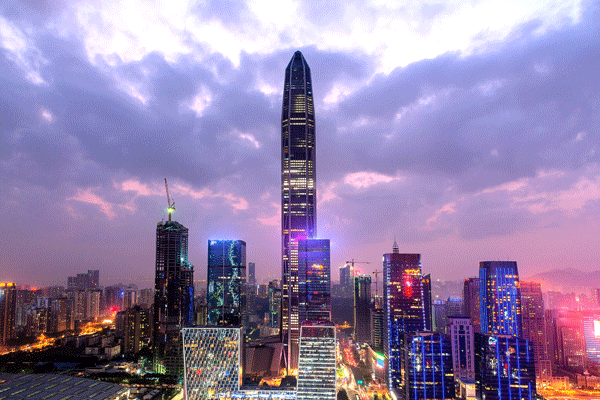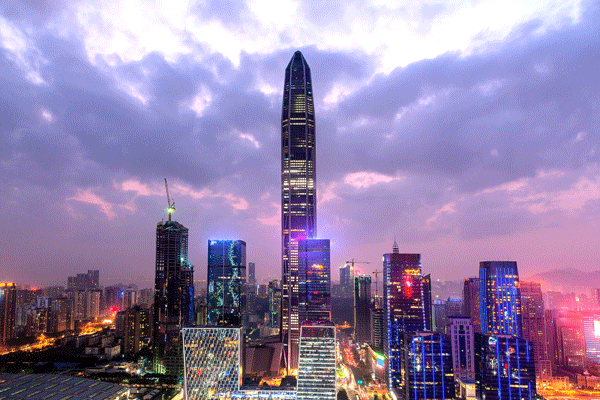This article first appeared on February 27, 2018 in ALB Insights, a weekly, ad-free newsletter that is sent to subscribers.

While a number of U.S. firms have closed or scaled back their presence in Greater China in the past couple of years, two have actually opened offices in the PRC in recent weeks. As both focus on legal work related to mainland’s booming technology industry, could this be a sustainable model for other U.S. firms in China, asks John Kang.
The past few years have seen a string of U.S. law firms either shrink their presence in Greater China or exit the region entirely. The most recent one was Troutman Sanders, which will close its offices in Beijing, Shanghai and Hong Kong by the end of May. It is set to follow in the footsteps of Winston & Strawn, Cadwalader, Wickersham & Taft and Fried, Frank, Harris, Shriver & Jacobson, all of which substantially withdrew from the region in the past few years.
But even as these departures continue, two U.S. firms have announced new offices in China in the past few weeks, and both are focused heavily on a particular industry: Technology.
In December last year, Chicago-based Brinks Gilson & Lione became the first foreign firm to open an office in the southern Chinese tech hub of Shenzhen. A month later, Palo Alto-based Cooley opened an office in the Chinese capital of Beijing, where it focuses on private investment funds formation and structuring work.
Brinks, an intellectual property specialist, is advising Chinese companies that export to the U.S. by helping protect their IP and technology, as well as providing defence against infringement allegations. “China is becoming increasingly more important for firms like ours that are devoted to helping high-tech companies with their intellectual property needs,” says Brinks president Gustavo Siller and shareholder Harold Johnson.
Meanwhile, the Cooley Beijing office has three lawyers: resident partner Xun Zeng, who joined from Ropes & Gray, and two associates, both of whom relocated from Cooley’s Shanghai office.
The Silicon Valley firm has been representing venture capital funds targeting China since 1989, but now it is representing Chinese funds as well. “We work with numerous globally recognised venture capital firms in China that are on the ground backing China-based companies, primarily in the technology and healthcare spaces,” says Jordan Silber, a partner in the firm’s global private investment funds group. ”Perhaps half of those venture fund clients are based in Beijing.”
RISING TECH HUBS
Shenzhen and Beijing, in the south and north of the country, respectively, are both rising centres for technology, along with the commercial hub of Shanghai.
Shenzhen, often referred as the Silicon Valley of China, is home to some of China’s biggest tech companies like Tencent – a client of Brinks – and Siller and Johnson are optimistic that there will be more tech giants there. “We expect that more Chinese companies will become world leaders like Tencent and will need the full range of IP services that Brinks offers,” they say.
The numbers look optimistic. According to a special report on Shenzhen by The Economist last year, the city’s Nanshan district is home to about 125 listed firms with a combined market value of nearly $400 billion. Also, the city spends more than 4 percent of its GDP on research and development, double the average in the rest of the nation, the report said. For example, Shenzhen-headquartered Huawei spends more on R&D than Apple does. As a result, companies in Shenzhen file more high-quality international patents than those in France or Britain.
And on the other side of the country in Beijing is a capital city flush with venture capital funding.
“In our experience, Beijing is one of the world’s most important startup company environments worldwide,” says Cooley’s Silber. “As a firm centred around venture capital, technology and healthcare, this is what drove us to focus on Beijing in addition to our vibrant office in Shanghai that opened in 2011.”
Beijing topped the list of cities with the most "unicorn" companies – startups valued at more than $1 billion – in China, according to the Hurun Greater China Unicorn Index 2017. Out of the 120 unicorns listed, 54 startups – such as Didi Chuxing and Xiaomi – were in Beijing, with a total estimated valuation of 13.75 billion yuan. For comparison, second was Shanghai with 28 unicorns, amounting to about 4.58 billion yuan.
“The growth of the China venture capital industry has been lockstep with the growth of these technology companies and, as such, it’s been robust, especially in the last 10 years,” says Silber. Just last year, VC investment in China reached a record high of over $40 billion, according to an analysis by KPMG last month, a 15 percent increase from the $35 billion seen in 2016.
“It might have been fair as of some time ago to say that many of the most successful Chinese startup technology companies were piggybacking on business models that had been successful in the United States or elsewhere outside of China,” says Silber. “But this statement wouldn’t be very fair today.”
To contact the writer, please email john.kang@tr.com.
